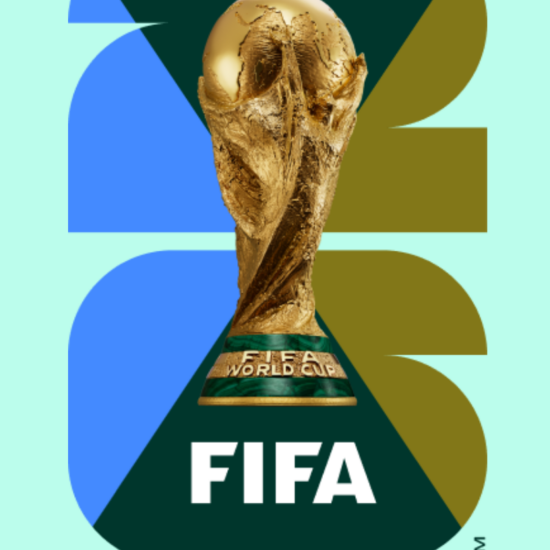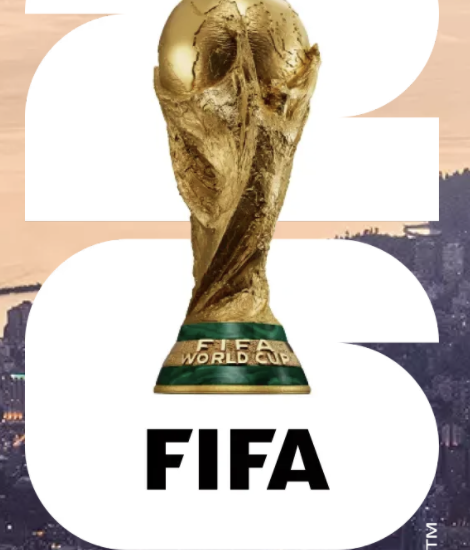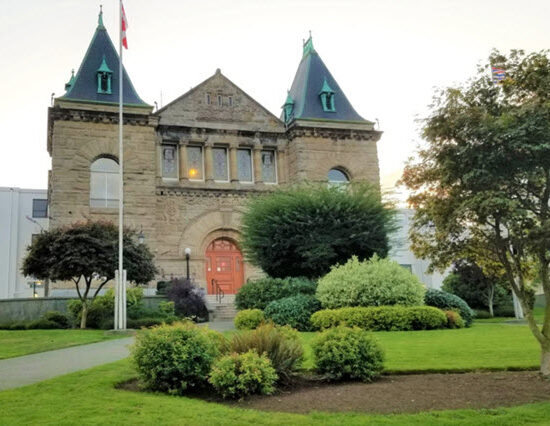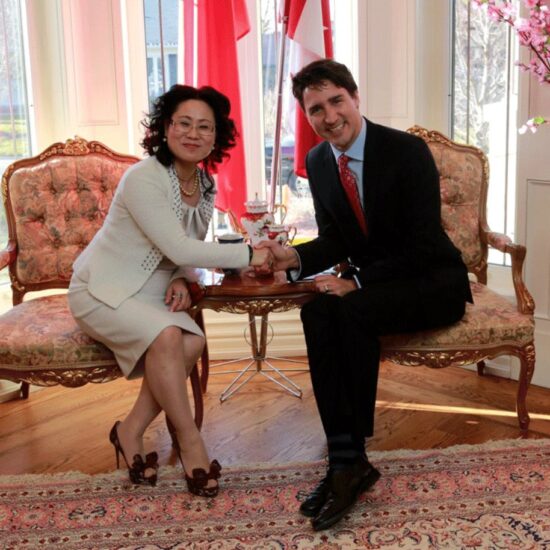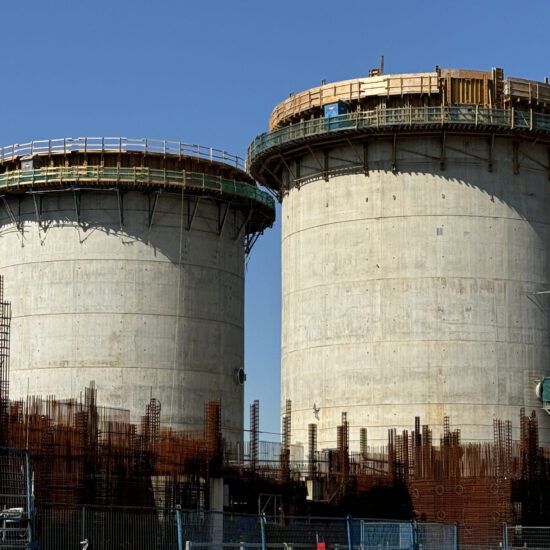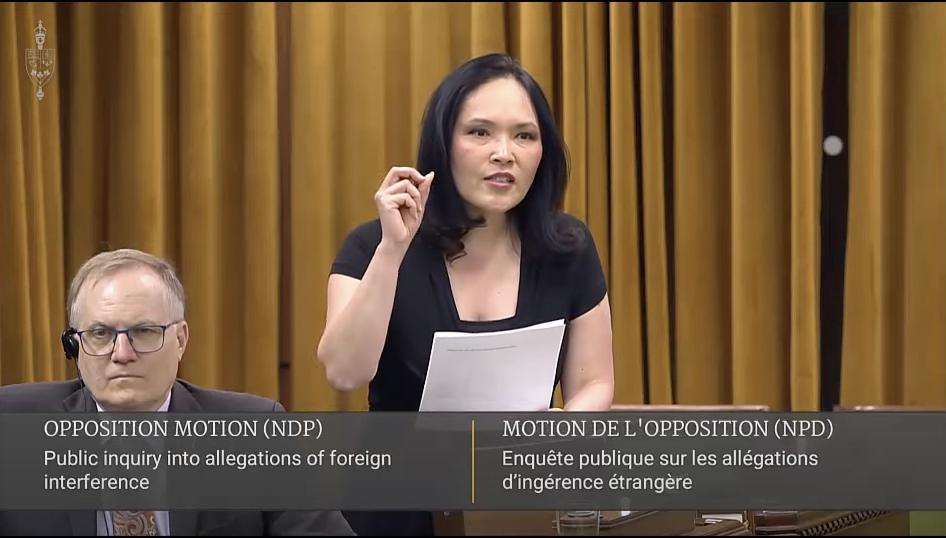
Bob Mackin
The longer Prime Minister Justin Trudeau delays calling a public inquiry into foreign interference, the more suspicious Canadians will become.
That from Member of Parliament Jenny Kwan (NDP-Vancouver East), who went public in late May after Canada’s spy agency revealed privately that she had become a target of China’s Communist government.

Jenny Kwan in the House of Commons (ParlVu)
“The more you send the message that the government is not taking this in the way it needs to, that doesn’t do Canada any good,” said Kwan, who has represented the federal riding since 2015. “The whole thing about foreign interference, of course, is that they want to undermine our democratic process, and to create chaos in our system. If we allow for this to continue, then they win.”
Talks continue between the Liberal minority government and opposition leaders about terms of reference and who might preside over a public inquiry after “special rapporteur” David Johnston quit June 9. The former governor general was dogged by accusations of conflict of interest, calls from opposition parties to resign and criticism for his report that recommended against a public inquiry.
On June 13, new RCMP commissioner Michael Duheme testified to a House of Commons committee that there are more than 100 foreign interference investigations ongoing, including one about the targeting of Conservative MP Michael Chong by Chinese diplomat Zhao Wei, who was expelled May 8. Kwan and former Conservative leader Erin O’Toole both went public about their meetings with Canadian Security Intelligence Service agents who outlined the threats against them. The Commissioner of Canada Elections is investigating their cases and Duheme pledged support from the Mounties.
Kwan said she was unable to discuss details of the CSIS briefing, except that she had drawn Beijing’s attention for her stance on human rights issues, such as the 2020 imposition of a national security law in Hong Kong and her vote in 2021 to condemn China’s treatment of Uyghur Muslims as a genocide.
“The briefings that I received from CSIS were such that I actually had to go into a room that they designated, for me to receive the information. So it’s not like they sent me an email to tell me this is what’s going on, because they need the level of security to be in place.”
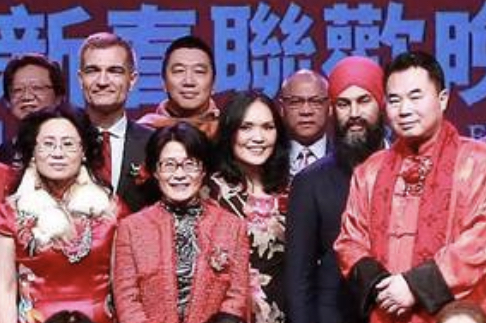
Jenny Kwan (centre) at a 2019 Lunar New Year banquet, with Chinese diplomat Tong Xiaoling, second from left in front. (CACA)
Kwan did mention one incident. During the 2021 federal election, Chinese Benevolent Association (CBA) president Fred Kwok paid for a free banquet in Chinatown, promoted on WeChat, in favour of Liberal newcomer, lawyer and Paralympian Josh Vander Vies. The CBA had bought newspaper ads in favour of the Hong Kong national security law and in opposition to the House of Commons motion on the Uyghur genocide.
Kwan still won re-election, but questions linger that she hopes investigators will answer. “Did anybody else finance this luncheon, and was there engagement by other parties involved in that, including, for example, the Chinese government?”
Hong Kong-born Kwan came to Canada at age 9 with her family. As a 26-year-old with COPE in 1993, she became the youngest city councillor elected in Vancouver history. Three years later, in 1996, the NDP’s Kwan in Mount Pleasant and BC Liberal Ida Chong in Oak Bay-Gordon Head became the first Chinese-Canadians elected to the B.C. Legislature. Another B.C. first came in 1998, when Kwan became Municipal Affairs Minister. She switched to federal politics and won Vancouver East in 2015.
Ivy Li of the Canadian Friends of Hong Kong said Kwan should be a “study case for all Canadians.”
“In the past, she was obviously not criticizing the CCP very strongly, and she was doing things that they were very supportive about. Then now she has changed, then she has strongly criticized them,” Li said.
Li called it a pretty drastic awakening and hopes Kwan will sustain her criticism of the CCP, which is known for charming politicians while carefully manipulating them until they’re of no use anymore.
“If you’re in the way or you become not under their control, not doing the way that they want you to go, then they will punish you,” Li said. “They will use the stick until you either behave, tone down your criticism, or even turn around and say that I was wrong, I’m sorry and my criticism was not true.”
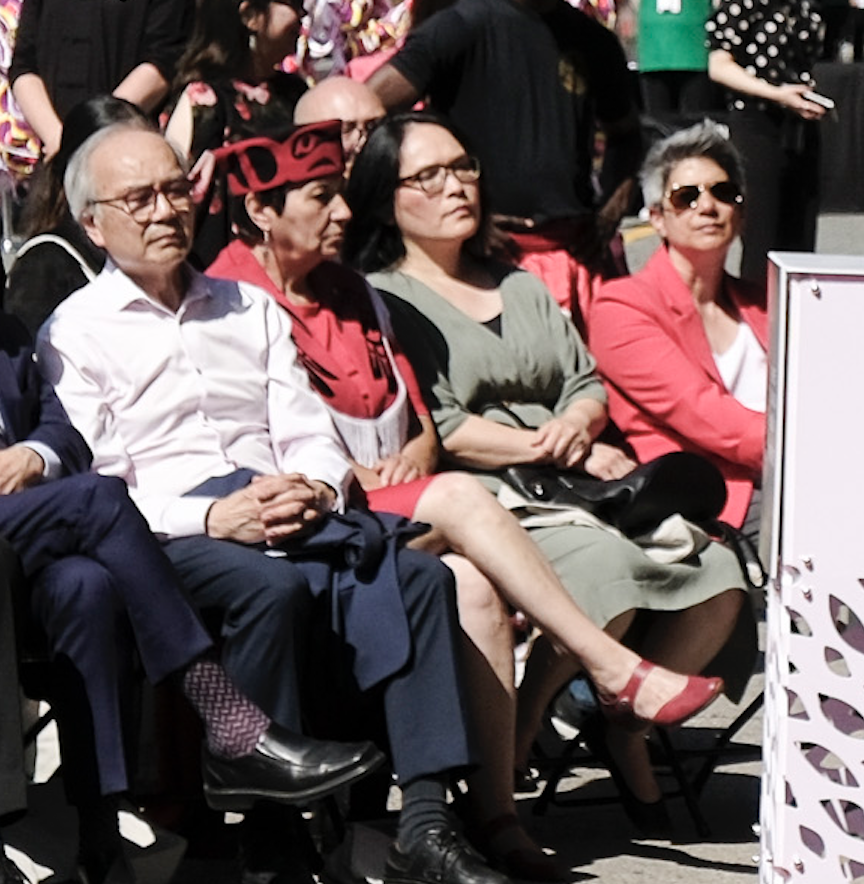
Jenny Kwan at the Chinese Canadian Museum opening ceremony (BC Gov/Flickr)
Li pointed to Kwan’s speeches in the House of Commons from 2017 to 2019 for a national day to commemorate the Nanjing Massacre of 1937, a campaign that was heavily promoted by the Chinese embassy, consulates and pro-China media across Canada. Also, Kwan was a skeptic in 2010 when CSIS director Richard Fadden warned publicly that the Chinese government was actively influencing provincial and municipal politicians.
She said Fadden’s comments were very general and did not come with names of victims or perpetrators of foreign interference.
“If you compare to the situation today, and what’s happening, the information that was leaked out was very specific,” Kwan said.
Kwan has also attended events where consular officials and their allies were present and received received political donations from prominent pro-Beijing figures.
On the Chinese language website for the Canadian Alliance of Chinese Associations (CACA), Kwan is in the centre of a group photo at River Rock Show Theatre during a 2019 Lunar New Year banquet. She stood beside Consul General Tong Xiaoling, who left Vancouver last summer but was mentioned in CSIS leaks to the Globe and Mail, boasting about her role to influence the outcome of the 2021 federal election in Richmond and 2022 civic election in Vancouver.
The CACA website boasts that it “actively participates in the activities of the Overseas Chinese Affairs Office,” which is synonymous with the Chinese Communist Party’s United Front global propaganda and intelligence program. Former CACA chairman Wang Dianqi donated almost $4,000 to Kwan’s riding association. She also received donations from one of his successors, Wei Renmin.
“Maybe in the past, that there might have been situations where people were trying to influence me, I don’t know,” Kwan said.
“If people were trying to influence me, predating this period, obviously, it didn’t work.”
Thekla Lit and Victor Ho of the Chinese Canadian Concern Group on the Chinese Communist Party’s Human Rights Violations say Kwan got the “cold shoulder at a museum in the very riding she was elected to represent,” despite being a trailblazer for Chinese-Canadians over 30 years at three levels of politics.
At the Chinese Canadian Museum’s June 30 opening ceremony, Kwan was seated near the side of the stage and neither invited to the stage nor acknowledged by the masters of ceremonies. By contrast, Wilson Miao, a Liberal elected in Richmond Centre in 2021, was seated in the middle, front row section and participated in a federal plaque unveiling.
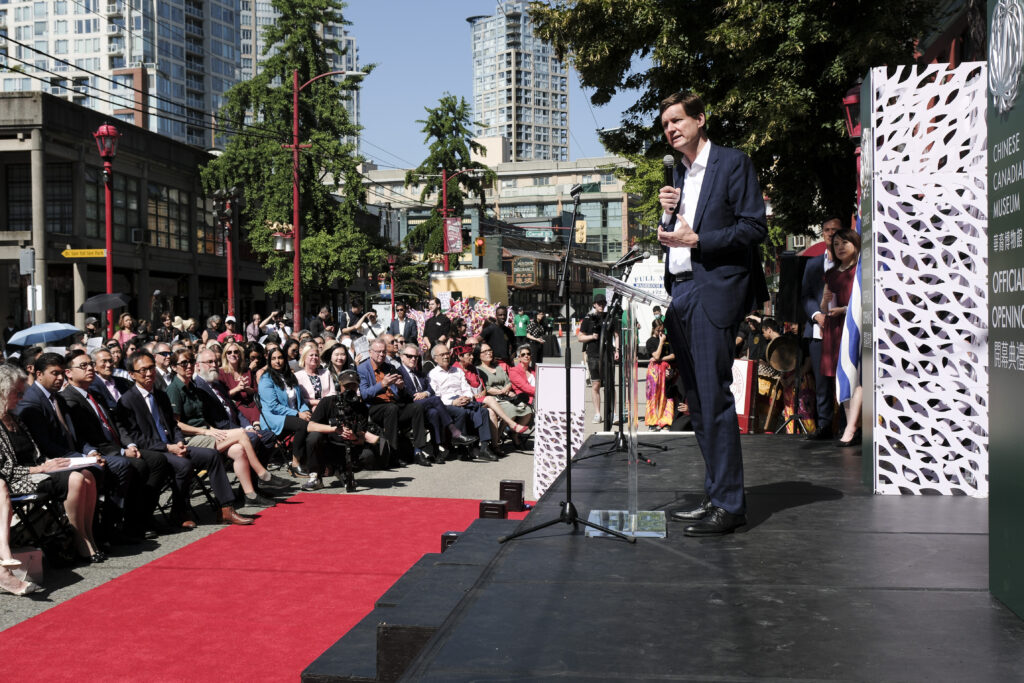
Premier David Eby at the Chinese Canadian Museum opening ceremony (BC Gov/Flickr)
Lit and Ho, in a July 10 statement, wonder whether it was another instance of foreign interference against “a political figure who dares to criticize human rights issues in China through Chinese-Canadian community organizations.”
Museum spokesperson Yvonne Chiang said the museum society has the “utmost respect and deepest admiration” for Kwan and her achievements, but had limited time in the 90-minute ceremony for speakers beyond those representing governments that helped fund the museum. Namely, International Trade Minister Mary Ng, Premier David Eby, Tourism Minister Lana Popham and Mayor Ken Sim.
The museum’s debut exhibit commemorates the centennial of the 1923 Chinese Immigration Act, which excluded nearly all categories of Chinese from immigrating to Canada until it was repealed in 1947. A week earlier, on Parliament Hill, Conservative Senator Victor Oh and Liberal-appointed Senator Yuen Pau Woo headlined centennial events. They conflated the old, racist law with their opposition to a proposed registry of foreign agents that is intended to counter foreign interference.
“That narrative very much reflects or mirrors that of what the Chinese government is trying to advance,” Kwan said. “Now, of course, we live in a democratic society, they’re allowed to have their point of view.”
Ultimately, she said, the Canadian government needs to send a clear message now that it won’t tolerate foreign interference and it will fight against it, whether the source is China, Russia, Iran or Saudi Arabia.
Support theBreaker.news for as low as $2 a month on Patreon. Find out how. Click here.






